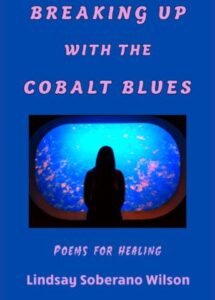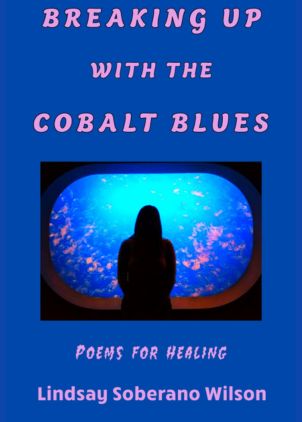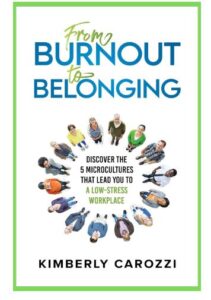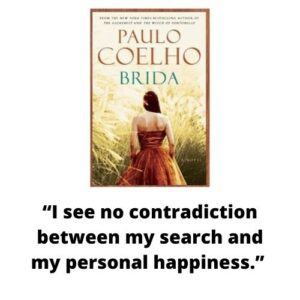
“Breaking Up with the Cobalt Blues, Poems for Healing” by Lindsay Soberano Wilson
We cannot define trauma, but in our hearts, we bear it like a cross, like an invisible tapestry, that manifests as intricate knots in the chambers of our memories. Traumas like tangled patterns shaped from the harshest moments of our lives tighten their grips as we try to unravel them. But it is in this struggle that we lose or discover ourselves.
And the first-hand proof of this discovery, this healing journey through the cobblestones of life’s grinding path is Lindsay Soberano Wilson’s “Breaking Up with the Cobalt Blues”. It is a raw, honest, and deeply moving collection of poetry that serves as a personal journey through trauma and a universal beacon of hope for those seeking a way out of it.
Through her vivid and often visceral verses, Wilson invites readers into the intimate spaces of her psyche, exploring the complex terrain of pain, resilience, and transformation.
The title itself is a powerful metaphor, suggesting the process of transcending oneself from depression (often associated with the colour blue) and moving towards healing. Wilson’s poems navigate this journey with dauntless courage, tackling themes of trauma, identity, mental health, suicide, drug, abuse, and self-discovery.
In poems like “I Call This Trauma,” Wilson uses rich imagery to personify trauma as a tapestry, illustrating how past experiences weave themselves into the fabric of our lives.
The brevity and impact of “How I Became A Poet” speak about the therapeutic power of creative expression. In just a few lines, Wilson captures the essence of how poetry can serve as a powerful weapon of redemption.
“And I replied
“I can’t;
it’s too painful,
but I can write a poem.”
In her poetic pen, sunlight simmers like match fire that burns for eternity, and life unfolds like a movie unravelling photo film. Taking reference from Nathaniel Hawthorne’s gothic story “Rappaccini’s Daughter” the poetess has crafted a unique poem in her pen “Like Rappaccini’s Daughter”.
Throughout the collection, Wilson employs various poetic techniques to convey the complexities of healing. In “Plan Z,” the use of space imagery evokes a sense of disorientation and the cyclical nature of mental health struggles. “Cracked Voice” uses the metaphor of a tired, raspy voice to illustrate how trauma manifests physically, highlighting the mind-body connection in the healing process. poems like “First Choice” and “Makeup Heals” challenge societal narratives and celebrate acts of self-care and self-prioritization as integral parts of the healing journey.
Every poem is unique in its exploration of identity and self-reclamation. Wilson’s pen is sharp enough to shake her readers from the torpor of trauma and accept life in the bravest face of woe. The poetess doesn’t shy away from darker themes, as evidenced in “Black Swan Song” and “Those Eyes,” but she consistently weaves threads of hope and resilience throughout her work.
Poems like “Glimmers” and “Get Our Hands Dirty,” acknowledge the ongoing nature of healing while emphasizing the importance of finding joy and purpose in the process.
Some poems bear the weight of memory, like never-ending repentance,
“I swear I was just tying my shoes and I must have looked down for too long…”
The inclusion of the prose pieces at the end of the collection adds another layer of depth to the collection. The personal essays not only provide context for some of Wilson’s experiences but also illustrate how healing often involves connecting with others and finding meaning through service.
The structure of the poems is unique. The fragmented lines resonate with splintered pieces of broken hearts. The use of assonance, alliteration and onomatopoeia insert beauty and animation into the poems.
“When
a
slow
drip
drip
drip
drop
dribbles
leaks
and then streaks…”.
“Breaking Up with the Cobalt Blues” is not just a poetry collection, it is a testament to the human spirit’s capacity for resilience and growth. Wilson’s words serve as a compassionate companion for anyone on their healing journey, offering validation, understanding, and gentle encouragement to keep moving forward.
This collection will resonate deeply with readers who have experienced trauma, struggled with mental health, or simply felt the weight of life’s challenges. It’s a reminder that healing is not a linear process, but a complex, ongoing journey of self-discovery and transformation. Through her poetry, Wilson invites readers to embrace their own stories, confront their pain, and find the courage to choose themselves – again and again.
It was a powerful, cathartic read that illuminated the path from darkness to light, reminding me that even in the most vulnerable moment, there is beauty, strength, and healing potential.
‘I can see again
life as a rare gem.’





